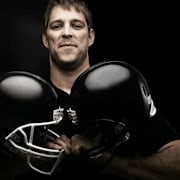The Uncharted Territory of HGH

Human Growth Hormone (HGH) has been a topic of debate, especially when it comes to how it affects athletic performance. Long-term research on HGH is limited, mostly because of laws that make it illegal to prescribe HGH to athletes or healthy people who don't need it for medical reasons. This means that most studies focus on people who have health conditions that cause HGH deficiencies. In these cases, HGH therapy helps bring hormone levels back to normal, and research shows that this can improve the health of these patients. However, this doesn't necessarily apply to athletes who use HGH to boost their performance.
Some studies on how HGH affects healthy people or athletes have been done in Europe, but they are very limited. These studies mostly look at short-term benefits, such as how HGH can help repair tendons. However, the studies involve small groups of people and only last for a short time, so they don’t give us a clear picture of the long-term effects of HGH. The main challenge in studying HGH is getting approval for these kinds of studies and finding people willing to participate because of the legal and ethical issues involved.
Because there is not enough research, we don’t fully understand the long-term effects of HGH. This is a problem for organizations like the World Anti-Doping Agency (WADA), which regulates what substances athletes can and cannot use. WADA bans substances based on athlete safety, but without long-term research, it's hard to say for sure whether HGH is safe or dangerous over time.
Some people argue that WADA’s strict rules on HGH might be more about controlling performance-enhancing substances than about protecting athletes. They point out that sports like cycling and football are already risky, and the dangers athletes face in these sports may be greater than any risks from using HGH. This raises questions about whether the regulations are really fair or necessary.
